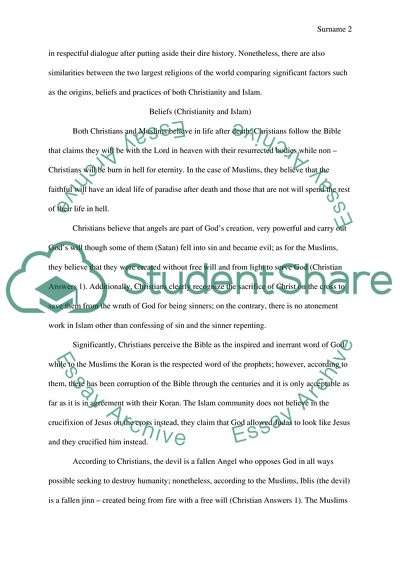Cite this document
(Characteristics in Christianity and Islam Report Example | Topics and Well Written Essays - 1750 words, n.d.)
Characteristics in Christianity and Islam Report Example | Topics and Well Written Essays - 1750 words. https://studentshare.org/religion-and-theology/1803456-two-specific-characteristics-in-two-modern-religious-faiths
Characteristics in Christianity and Islam Report Example | Topics and Well Written Essays - 1750 words. https://studentshare.org/religion-and-theology/1803456-two-specific-characteristics-in-two-modern-religious-faiths
(Characteristics in Christianity and Islam Report Example | Topics and Well Written Essays - 1750 Words)
Characteristics in Christianity and Islam Report Example | Topics and Well Written Essays - 1750 Words. https://studentshare.org/religion-and-theology/1803456-two-specific-characteristics-in-two-modern-religious-faiths.
Characteristics in Christianity and Islam Report Example | Topics and Well Written Essays - 1750 Words. https://studentshare.org/religion-and-theology/1803456-two-specific-characteristics-in-two-modern-religious-faiths.
“Characteristics in Christianity and Islam Report Example | Topics and Well Written Essays - 1750 Words”. https://studentshare.org/religion-and-theology/1803456-two-specific-characteristics-in-two-modern-religious-faiths.


